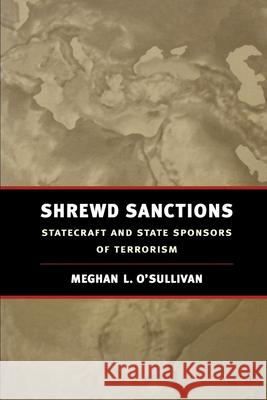Shrewd Sanctions: Statecraft and State Sponsors of Terrorism » książka
Shrewd Sanctions: Statecraft and State Sponsors of Terrorism
ISBN-13: 9780815706014 / Angielski / Miękka / 2003 / 448 str.
O'Sullivan, an expert on the use of positive and negative tools of economic statecraft, argues that in the post-September 11 international climate, the US will be even more willing to use its economic power to advance its foreign policy goals than in the past. This impulse, she argues, can lead to a more effective foreign policy, given the many ways in which sanctions and incentives can forcefully advance US interests. However, a recalibration of these tools - sanctions in particular - is necessary in order for them to live up to their potential. Critical to such a reassessment is a thorough understanding of how the post-Cold War international environment - globalization and American primacy in particular - has influenced how santions work. O'Sullivan addresses this issue in an thorough examination of sanctions-dominated policies in place against Iran, Iraq, Libya and Sudan. Her findings not only hightlight the many ways in which sanctions have often been poorly suited to acheive their goals in the past, but also suggest how policymakers might use these tools to better effect in the future.











